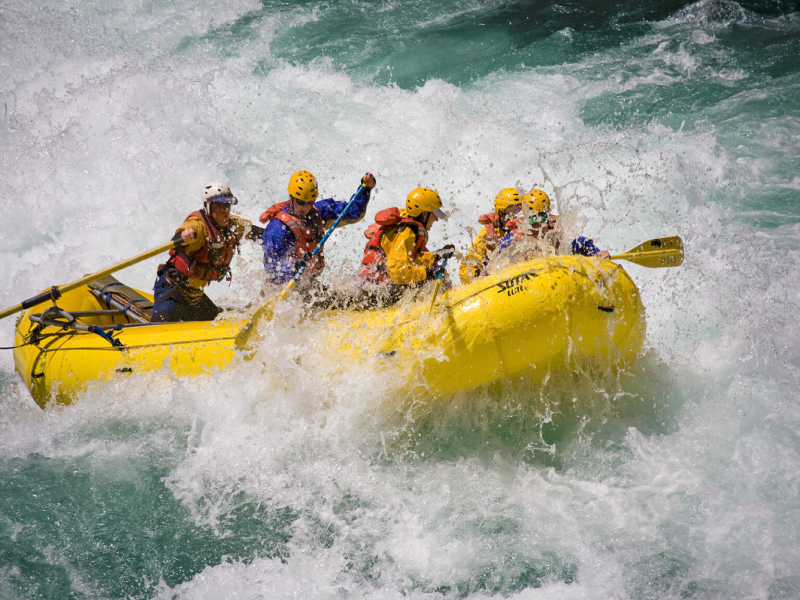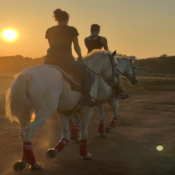Responsible Rafting: Minimizing Your Impact on Sri Lanka’s Environment

Responsible Rafting: Minimizing Your Impact on Sri Lanka’s Environment
Table of Contents
ToggleIntroduction – Responsible Rafting
Despite its small size, Sri Lanka is a country with impressive geography and amazing flora and fauna: trekking in Sri Lanka promises a lot of fun. Of the aforementioned adventurous activities, whitewater rafting, in particular, has received staggering tourism interest. But, to ensure that we do not affect Sri Lanka’s fragile ecosystem negatively we need to practice safe rafting.

Understanding Your Impact
This paper aims at looking at how this interesting activity has both positive and negative impacts on the environment in case it is not well managed. Here’s a breakdown of the key areas where rafting can affect the environment:
- Water Pollution: They bring in manners such as through wearing sunscreen lotion, applying insect repellent spray, and depositing scraps of food which pollutes this river hence devastating the aquatic life and setting abnormality of the system.
- Habitat Destruction: Rafting may cause disruption of physical channels that support some river-bed organisms through uprooting them through enhanced erosion.
- Erosion and Sedimentation: Boat traffic can positively feed the erosion process; sediment in water makes plants difficult to grow, and low oxygen levels in the water are also as a result of boat traffic.
Responsible Rafting Practices
To ensure a sustainable and enjoyable rafting experience, it is essential to adopt responsible practices:
Selecting a Responsible Operator
- Research and Select a Reputable Company: Choose the operator of the rafting service provider with good environmental conservation practices and is environmentally friendly.
- Check for Certifications: Companies which promote themselves as being environmentally conscious may have the EarthCheck or Green Globe label.
- Inquire About Sustainability Initiatives: Customers should enquire if the company has minimized their impact on the environment through things like the disposal of wastes and provision of aid to a community.
Pre-Trip Preparation
- Pack Eco-Friendly Essentials: Select environmentally friendly sun cream and insect repellent in order to avoid negative impact on marine organisms.
- Minimize Waste: Carry your own lunch boxes and water bottles so that use of plastic utensils and polythene water bottles is discouraged.
- Learn River Etiquette: And to a certain extent of civilizing oneself it is wise to learn some fundamental river safety rules and regulations to minimize any interference.

On-River Behavior
- Respect Wildlife: Party and feed the wildlife because this interferes with its normal functioning.
- Stay on Designated Routes: Stay only in the marked rafting zones due to concern of impacts to the environment and the species.
- Proper Disposal of Waste: Treat all other waste appropriately so that they don’t go to the river or nearby environment.
Post-Trip Cleanup
- Leave No Trace: Clean up your mess, pick up all the scraps and remains of the things that maybe lying all over the place or even on the river bank.
- Support Local Conservation Efforts: Don’t hesitate to donate to local non-governmental organizations or join volunteer programs in order to save environment of Sri Lanka.
Supporting Local Communities
However, when practiced responsibly the rafting business does present the ability to produce both, economic returns and the upliftment of local communities in the course of offering and adhering to sustainable tourism. Here’s how you can contribute:
- Patronize Local Businesses: People should consume meals, lodges, meals, clothes, drinks among others to contribute to stopping the spread of the virus.
- Engage with Communities: Discover more about the culture, and heed your way around the people with a lot of respect for them.
- Contribute to Community Projects: It is also important that tourism stakeholders should support volunteerism or give donations in the development projects.

Conclusion
If guidelines of proper rafting is maintained, it will be of immense benefit fro the rivers and the groups involved in Sri Lanka since they stand to balance the effects of the natural resource of water on the flora and fauna of the country. It has to be understood that every single step also makes a difference. When you select a good operator, take care in preparing and make sure you do not cause any harm or pollution to this gifted island destination, then we can always be sure that our rafting experiences are some of the best without polluting the environment.
Recent Posts
Kitulgala on Horseback: Explore the Countryside on a Scenic Trail Ride
Spiritual Sites Near Kitulgala: Discover Ancient Temples and Sacred Places
Kitulgala for Digital Nomads: Work Remotely in a Stunning Natural Setting
Tags





